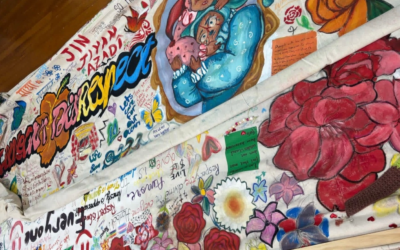The Soundtrack to Modern Life: A Dangerous Complacency
A subtle hum of artificial intelligence has become the soundtrack to modern life, so pervasive that we sometimes overlook it. Everything from setting alarms to selecting what show to watch uses AI powered algorithms. It’s the invisible architect of human lives in communication, commerce, and consumption at every juncture.
The seamless coexistence with humans, while convenient, fosters a dangerous complacency, obscuring the disturbing influence unfolding on human existence.
In pursuit of algorithmic efficiency, are we compromising the basis of human employment, escalating economic inequality, undermining fundamental societal bonds, and challenging our purpose?
World Economic Forum founder Klaus Schwab claims AI is a technological and societal revolution which could ‘elevate or fracture humanity.’ The public underestimates the potential for disruption caused by integrating AI into society, rendering society ill-prepared for deeper impacts that could catastrophically fracture it.
The Silent Takeover: Job Displacement and the Human Cost
Extensive AI-driven job displacement threatens the global workforce. According to the Vanderbilt Political Review, key institutions are sounding the alarm. The World Economic Forum is concerned that AI could replace numerous jobs and increase the profit distribution gap by 2025. The Golden Sachs study estimates 300 million jobs threatened by AI around the globe.
The 2017 report from McKinsey Global Institute proposes AI may force 14% of the world’s working population to change jobs by 2030. Such displacement has consequences for human capital and conventional career paths.
The World Economic Forum analysis points toward changing salary expectations, wherein workers are expected to accept pay cuts for AI-assisted jobs.
Capitalism’s New Frontier: Wealth Concentration and Economic Instability
Rapidly advancing AI threatens capitalism and raises serious concerns about rising wealth concentration and global economic instability. While it has enormous productivity potential, benefits become decreasingly obvious the more the AI is scrutinised.
Research by economist Daron Acemoglu suggests employment decreases by 0.2% and corresponding wages by 0.42%, for every additional robot per 1000 workers. If this trend continues, experts warn it could lead to issues for consumer economies and wealth inequality.
Strategies for reducing economic impacts usually involve ideas like Universal Basic Income (UBI) or a ‘robot tax’, in which businesses using machines support human reskilling programs.
If proactive measures to address this fundamental shift in profit distribution are not taken, consumer-based economies risk entering a crisis, as a declining labour share of income diminishes total demand and causes systemic instability.
The Social Fabric Unravels: Erosion of Connection and Ethical Dilemmas
Human interactions are being reprogrammed by the pervasive integration of AI models.
AI communication is transactional rather than empathetic, and erodes genuine human relationships and emotional depth. According to IE University insights, AI companion platforms like Replika provide emotionally responsive robots that stimulate friendship, romance and therapeutic conversations. While studies have concluded AI companions decrease loneliness through a sense of being heard, extended engagement can result in increased loneliness and social withdrawal.
Political implications are similarly severe. Algorithmic influence on social media might deepen political divides and shape the democratic landscape ahead of elections, generating serious concerns for human rights. These ethical problems, if neglected, will accentuate mistrust in automated systems and socio-economic imbalance.
Echoes from the Elite: Elon Musk, Bill Gates, and the Billionaire’s Burden
The titans that built the technology landscape are now confronting the serious ramifications of AI. Their public comments reflect a growing concern that goes beyond economic implications, wrestling with what the future of human purpose and work will mean in the AI paradigm.
Tech entrepreneur Elon Musk, addresses AI as ‘the most disruptive force in history.’ As reported in 2023 by Millicent Machell for HR Magazine, Musk sees a future where ‘no job is needed’, suggesting people would work for ‘personal satisfaction.’ In his view, the primary obstacle for humanity would transition from economic necessity to the existential challenge of discovering life’s purpose in this advanced age. Musk describes a future society in which essential human motivations to work disappear, creating a societal gap that humanity would be compelled to address.
While Musk presents an intense forecast about AI’s future effects, Microsoft cofounder Bill Gates maintains a more measured yet equally serious stance on the rapid technological advancement. According to Egna Perez for CMU.fr, Gates openly accepts that AI leads humanity into ‘completely new territory,’ with accompanying ‘fears and challenges’. Gates claims the technological future seems bright while recognising significant flaws in AI. He points to biases that could exacerbate existing health inequalities and AI-dependence for crucial decisions.
A Crossroads for Humanity: Is This Progress or Peril?
Humanity must consider whether AI adds value to life and the economy. AI has definite capabilities of solving major world problems, from detecting fraud to monitoring crops and enabling digital inclusion. The existing path seems to lead towards a future where the benefits are concentrated, while widespread employment reduction, the amalgamation of social divides and societal fragmentation remain major threats.
Conclusion: A Fractured Future
Humans face an existential problem resulting from the current trajectory of artificial intelligence. We are at a crossroads where the promise of efficiency provided by algorithms has become more appealing than the promise of human purpose, connection and shared capital.
The facts are clear: AI has the potential to do more than augment. It is changing every facet of economic life, society and privacy; issues worthy of attention.
Warnings put forth by those at the forefront of technological development show it is a present-day issue for all, from factory workers to corporations. The next step needs to balance the integration of AI into society with the overall well-being of society.
The future of our global economy depends on deciding between optimising AI to enhance humanity or allowing it to fracture us beyond repair.



